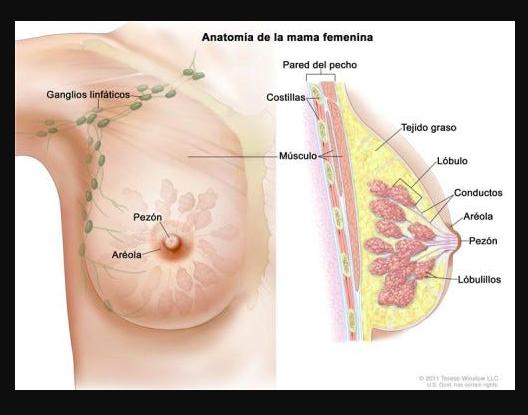Breast cancer is one of the most common cancers affecting women worldwide, but men can also be diagnosed with it. One of the most frequent questions asked is, how fast does breast cancer grow? The answer is not always simple, as breast cancer growth varies depending on several factors, including the type of cancer, genetics, lifestyle, and early detection. Understanding the pace of breast cancer growth is essential for awareness, prevention, and timely medical intervention.
When detected early, breast cancer is highly treatable, and survival rates are significantly higher. However, delayed detection can allow the cancer to spread (metastasize) to other parts of the body, making treatment more complex. This article explores how quickly breast cancer develops, risk factors, symptoms, treatment options, prevention strategies, and the latest research, offering valuable insights for patients, families, and caregivers.
Definition and Overview
Breast cancer occurs when abnormal cells in the breast tissue grow uncontrollably and form a tumor. These cells can spread to nearby lymph nodes or other organs if not treated promptly. The speed of breast cancer growth varies; some tumors grow slowly over years, while others can become aggressive and spread rapidly within months.
The doubling time, or the period it takes for a tumor to double in size, depends on the cancer subtype. On average, studies suggest that breast tumors may double in size every 50 to 200 days, but this rate can be faster in aggressive cancers such as triple-negative breast cancer.
Types
There are several types of breast cancer, each with different growth patterns:
- Invasive Ductal Carcinoma (IDC): The most common type, often moderate in growth.
- Invasive Lobular Carcinoma (ILC): May grow more slowly and spread in a diffuse pattern.
- Triple-Negative Breast Cancer (TNBC): Known for fast and aggressive growth.
- HER2-Positive Breast Cancer: Can grow rapidly without treatment but responds well to targeted therapy.
- Hormone Receptor-Positive Breast Cancer: Typically slower-growing and highly treatable.
Causes and Risk Factors
Breast cancer growth is influenced by multiple factors:
- Genetics: Mutations in BRCA1 and BRCA2 genes increase the risk and aggressiveness.
- Age: Older age increases the likelihood of slower-growing but persistent tumors.
- Family History: Having close relatives with breast cancer raises risk levels.
- Hormonal Factors: Estrogen exposure can stimulate faster growth.
- Lifestyle: Obesity, alcohol consumption, and smoking may accelerate cancer development.
Symptoms and Early Warning Signs
Recognizing symptoms early is crucial for slowing the spread of breast cancer. Common warning signs include:
- A lump or thickening in the breast or underarm
- Changes in breast size, shape, or skin texture
- Nipple discharge (especially bloody)
- Persistent breast pain
- Redness or dimpling of the skin
Diagnosis
To determine how fast breast cancer grows, doctors use imaging and biopsy tests. These may include:
- Mammogram: Detects early changes in breast tissue.
- Ultrasound or MRI: Provides detailed imaging for fast-growing tumors.
- Biopsy: Examines cancer cells under a microscope.
- Genetic Testing: Identifies mutations linked to aggressive growth.
Treatment Options
The treatment plan depends on the type and speed of growth:
- Surgery: Removal of tumors or mastectomy.
- Radiation Therapy: Destroys remaining cancer cells after surgery.
- Chemotherapy: Effective for fast-growing cancers such as TNBC.
- Hormone Therapy: Slows growth in hormone receptor-positive cancers.
- Targeted Therapy: Used for HER2-positive tumors.
- Immunotherapy: Strengthens the immune system to fight aggressive cancer.
Prevention and Lifestyle Recommendations
Although breast cancer cannot always be prevented, lifestyle changes can reduce risks:
- Maintain a healthy weight
- Exercise regularly
- Limit alcohol consumption
- Avoid smoking
- Perform regular self-exams and attend routine screenings
Prognosis and Survival Rates
How fast breast cancer grows plays a major role in prognosis. Slow-growing cancers generally have better outcomes, while aggressive cancers require urgent treatment. According to recent data, the 5-year survival rate for localized breast cancer is about 99%. However, survival drops significantly if the cancer spreads to distant organs.
Latest Research and Innovations
Recent studies focus on improving early detection and targeting aggressive breast cancers. Liquid biopsies, AI-powered imaging, and personalized medicine are transforming the way doctors predict how fast breast cancer grows. Immunotherapy and novel drugs targeting genetic mutations are showing promising results in extending survival rates and reducing recurrence.
Coping and Support for Patients
A breast cancer diagnosis can be overwhelming. Emotional and psychological support is just as important as medical treatment. Patients are encouraged to join support groups, seek counseling, and involve family and friends in the healing process. Stress management, mindfulness, and maintaining a positive outlook can greatly improve quality of life during treatment.
Conclusion
So, how fast does breast cancer grow? The answer depends on the type, stage, and individual health factors. While some cancers grow slowly, others can advance rapidly, making early detection essential. With modern medicine, timely treatment, and preventive measures, the chances of survival and recovery are higher than ever. Awareness and proactive health care remain the strongest defenses against breast cancer.
FAQ
1. How fast can breast cancer spread in a year?
Aggressive types like triple-negative breast cancer can grow and spread within months, while slower types may take years to progress.
2. Can breast cancer develop in a few weeks?
Yes, in rare cases, fast-growing types can appear within weeks, highlighting the importance of regular checkups.
3. Does breast cancer always grow at the same speed?
No, growth rates vary depending on genetics, type, and treatment response.
4. Can lifestyle changes slow breast cancer growth?
While lifestyle changes cannot cure cancer, maintaining healthy habits can reduce risk and improve overall treatment outcomes.
5. What is the best way to detect breast cancer early?
Regular self-exams, mammograms, and timely medical checkups are the most effective ways to catch breast cancer early.

